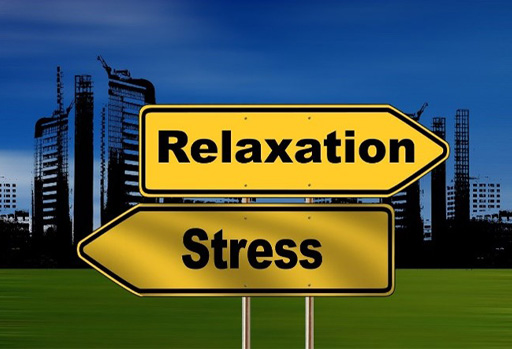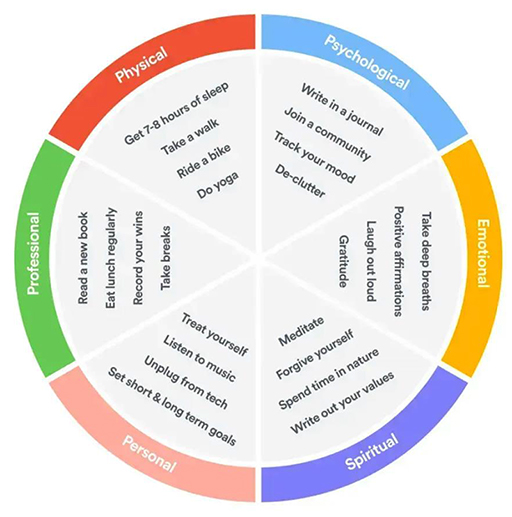4.6 Finding time for you
Do you make time for yourself to engage in what helps you, recharges you and makes you more resilient? Sometimes this might involve physical activity while at other times the focus may be more on resting, thinking or consolidating.
The sooner you embed looking after your health on a daily basis and find time for yourself, the better your overall physical, emotional and mental health is likely to be. As you have been learning in this week so far, creating healthier habits at any age is a powerful way to prevent ill health, build resilience, improve self-esteem and boost physical, as well as mental, health and wellbeing.
It is a myth that you need a lot of time to apply self-care; self-care can be practised in many ways and its activities may be quick and easy – for example, taking a minute here or there to relax, focus on your breathing and notice the sounds around you, or just taking a short break to walk in nature. Other ways may involve more time and planning but, when routinely practised, can bring you closer to a good state of physical and mental health and wellbeing.
Activity 12 Taking time for yourself
In your reflective diary note down any way in which you made time for yourself and your self-care today or over the last week; this will help you identify where self-care improvements could be made. Then, populate your own self-care wheel diagram, similar to the example below, noting 10 things that are very important to you in your life and then add a number 0–10 on how well you think you are doing in each of the 10 areas you have entered on the wheel.
You can then reflect on the following questions:
- What area do you feel you are already doing well in?
- What area would you like to work on?
- What actions can you do over the next week?
- What actions can you do over the next month?
- What support do you need for these actions?
- Are there any potential barriers?
- How will you know that you have achieved your specific goals?
Discussion
Exercise patience with yourself when making these changes. Remember in Activity 2, you learned that it could take between 18 and 254 days to change a habit, with 66 days being the average time (Lally et al., 2010). Therefore, consider these actions as long-term, sustainable positive habits which can be effectively implemented over time.



